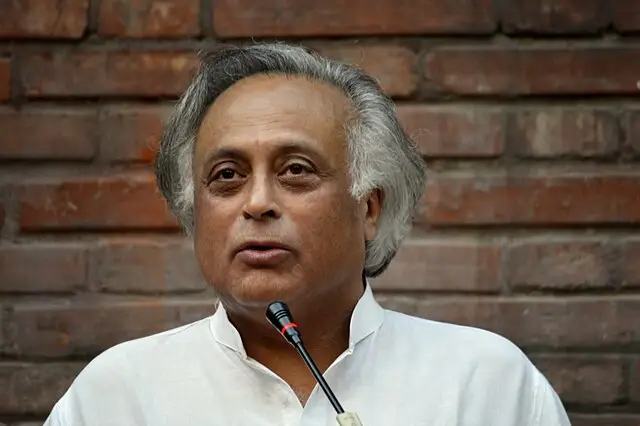Congress to challenge Waqf Bill in Supreme Court: ‘will continue to resist all assaults of Modi Govt’

Congress to Challenge Waqf (Amendment) Bill in Supreme Court
Party says it will defend religious freedom and constitutional values
New Delhi, April 4 – The Congress party has announced that it will soon file a petition in the Supreme Court challenging the recently passed Waqf (Amendment) Bill. The party called the Bill another example of the Modi government’s attempts to undermine the Constitution and religious freedoms.
Congress leader Jairam Ramesh issued a strong statement shortly after the Bill passed the Rajya Sabha. “We are confident that this Bill, like many other acts of the Modi government, will not hold up in court,” he said. “Congress will continue to resist every assault on the Constitution and minority rights.”
Legal Battle to Focus on Religious Freedom
According to sources in the Congress legal cell, the challenge will be filed under the name of general secretary K. C. Venugopal. The plea is likely to argue that the Bill violates Article 25 of the Constitution, which guarantees the right to freedom of religion.
“This Bill infringes on the autonomy of religious institutions,” said a Congress legal adviser. “It also threatens the right of communities to manage their religious properties.”
The petition is currently being drafted and is expected to be filed in the Supreme Court very soon.
Consistent Opposition Since Introduction
The Waqf Bill was introduced in August 2023. Since then, the Congress has consistently opposed it. Party leaders say the legislation allows the government excessive control over Waqf properties—land and assets held for religious or charitable purposes in the Muslim community.
“This is not about regulation; it’s about interference,” said a Congress MLA from Uttar Pradesh. “This Bill is part of a broader agenda to undermine minority institutions.”
Bill Passed After Heated Midnight Debate
The Bill was passed in the Lok Sabha during a late-night session after a 12-hour debate. Opposition leaders strongly criticized the timing and the content of the Bill. They accused the government of pushing it through without proper consultation or transparency.
In the Rajya Sabha, a similar debate followed the next day. Several MPs spoke against the Bill, but the government managed to pass it after another round of extended discussions that went past midnight.
What the Waqf Amendment Bill Proposes
The Waqf (Amendment) Bill, 2024, brings significant changes to how Waqf properties are managed and how disputes are settled. It introduces new rules for oversight, which many fear could lead to government control of religious assets.
Union Home Minister Amit Shah defended the Bill. He said it aims to promote transparency and improve administration. “There is no clause that allows interference in religious matters,” he said during the debate.
But opposition MPs remained unconvinced. “If there’s no interference, why were these changes made without consulting those affected?” asked a Congress MP.
Part of a Larger Legal Strategy
This move is part of a broader legal campaign by Congress. Jairam Ramesh pointed out that the party is already involved in several high-profile constitutional cases.
These include:
- The Citizenship Amendment Act (CAA) challenge
- Amendments to the Right to Information (RTI) Act
- Changes to the Conduct of Election Rules, 2024
- Upholding the Places of Worship Act, 1991
“Each of these cases reflects our commitment to protect democratic and constitutional values,” Ramesh added.
Wider Concerns Beyond Party Politics
The Congress isn’t alone in its criticism. Minority rights groups, religious scholars, and legal experts have also raised concerns. Many believe the Bill may lead to encroachments on Waqf land and weaken religious autonomy.
“There are already rules to deal with misuse or corruption,” said a senior lawyer from the All India Muslim Personal Law Board. “This Bill is an overreach and a potential threat to religious freedoms.”
What Happens Next?
The Congress party is preparing to take the matter to the Supreme Court in the coming days. Legal experts believe the court will take the petition seriously, especially in the context of similar ongoing cases.
Meanwhile, Congress leaders plan to launch awareness campaigns across the country. These will focus on informing the public about the potential consequences of the Waqf Bill.
Final Thoughts: A Test of Constitutional Balance
The passage of the Waqf (Amendment) Bill has opened a new legal and political front. It raises important questions about the balance between regulation and religious freedom.
Congress hopes the court will strike down the law or at least limit its more controversial provisions. Whether that happens or not, the debate around this Bill is likely to shape future conversations about minority rights and constitutional safeguards in India.






